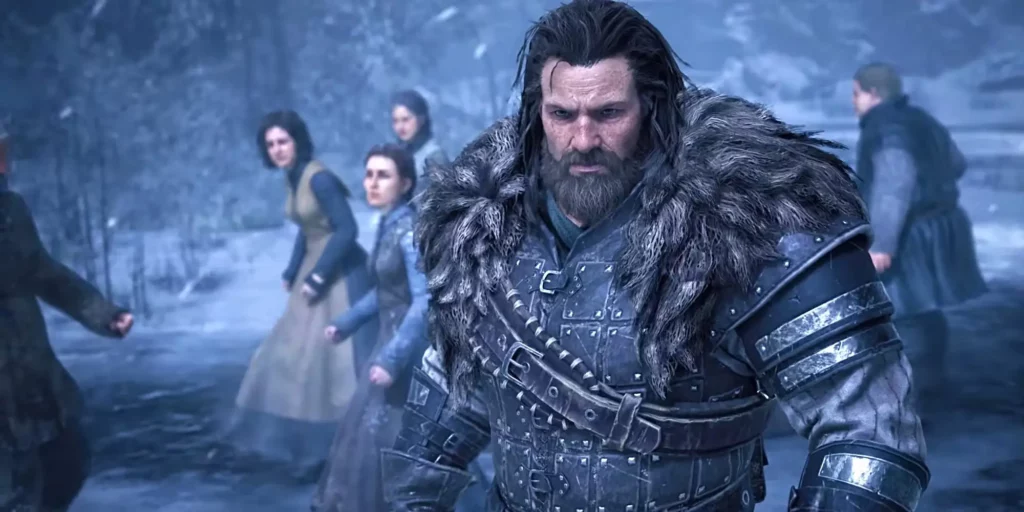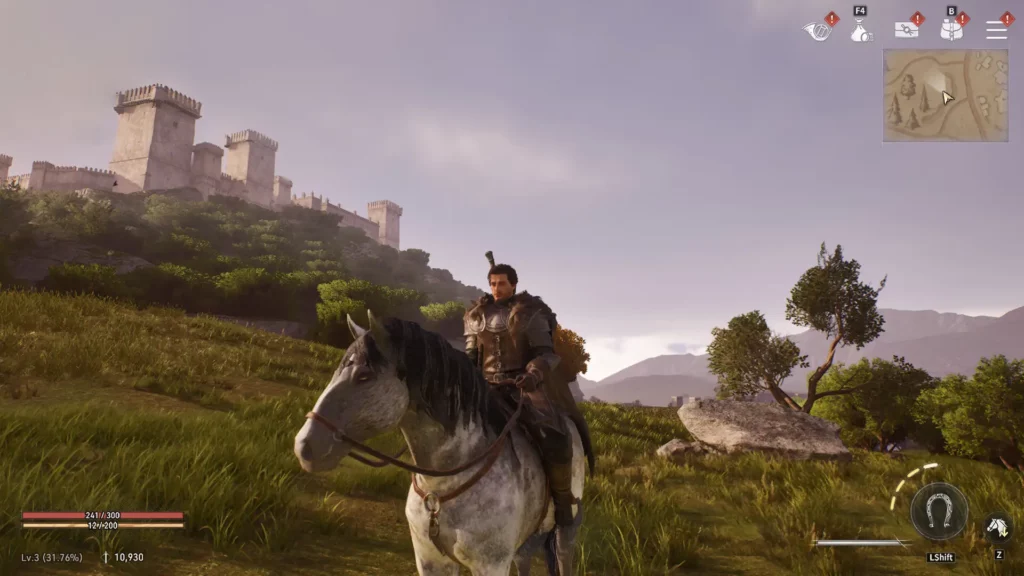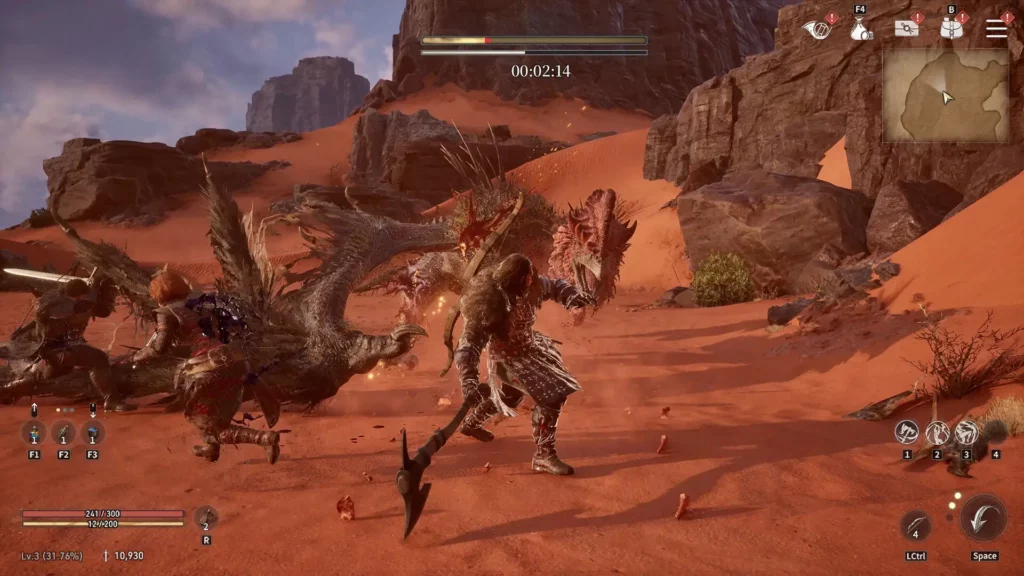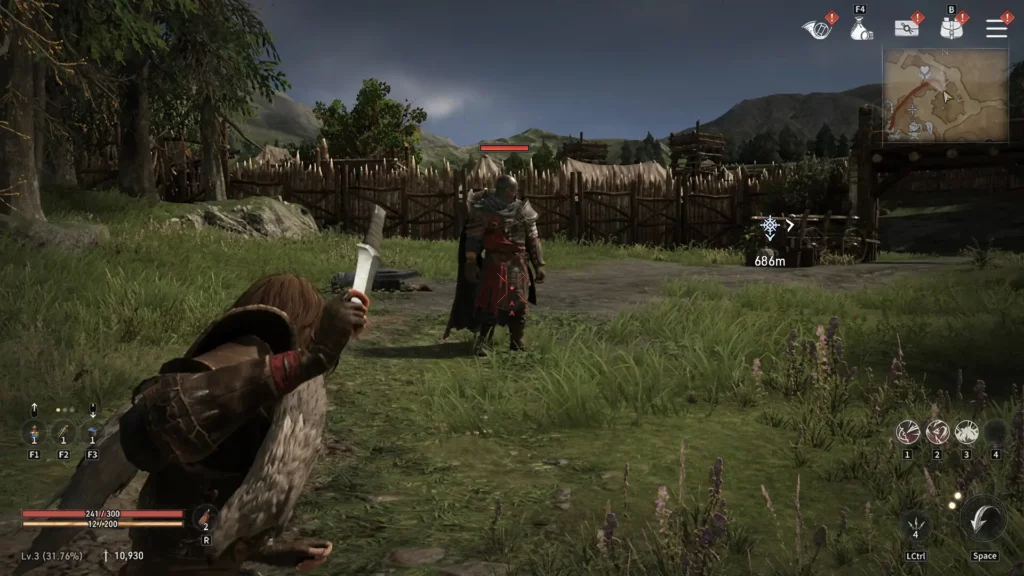Game of Thrones: Kingsroad, developed by Netmarble, immerses players in the treacherous and captivating world of Westeros, drawing directly from the HBO series that captivated audiences with its blend of political intrigue, epic battles, and mythical creatures. This free-to-play, mobile-optimized open-world RPG places players in the role of a bastard heir to House Tyre, tasked with navigating the complex social and political landscape to secure power and legitimacy. After spending over 20 hours in the Early Access version, the game reveals a mix of breathtaking moments and significant frustrations, largely due to its pervasive microtransaction model. This review, based solely on the Early Access build, will be updated with final impressions once the full 1.0 version launches. For now, Kingsroad offers a tantalizing glimpse of Westeros, but its reliance on paid systems casts a long shadow over its potential.
Stepping Into Westeros: The Story Setup
Set during the turbulent events of Game of Thrones’ fourth season, Kingsroad introduces players as the sole surviving heir of House Tyre, a noble house facing uncertainty as its lord battles illness. The central goal is to traverse the sprawling lands of Westeros, forging alliances and earning the respect of powerful figures to shed the stigma of illegitimacy and claim leadership of the house. Along this journey, players encounter familiar characters from the series, including the honorable Jon Snow and Samwell Tarly, as well as the sinister Roose and Ramsay Bolton. These encounters ground the game in the show’s rich narrative, bringing a sense of authenticity to the experience.
For those unfamiliar with the intricate lore of Game of Thrones, the game provides a concise tutorial that effectively sets the stage. This opening sequence briefly takes players beyond the Wall, introducing the looming threat of the White Walkers and the ongoing dynastic conflicts that define Westeros. While the fourth season is a complex entry point, the tutorial does a commendable job of distilling the broader themes of power, betrayal, and survival, ensuring players can quickly grasp the stakes of their journey. The narrative setup is compelling, capturing the tragic and high-stakes atmosphere that fans expect from the series, though its execution is often hampered by other aspects of the game.
Choosing Your Path: Character Creation and Archetypes
Before delving into the political machinations of Westeros, players must select a character archetype that defines their combat style and approach to challenges. Kingsroad offers three distinct options: the Knight, a balanced sword-wielder capable of holding their own in varied situations; the Sellsword, a hulking axe-wielder inspired by characters like Tormund and Brienne of Tarth, designed to overpower groups of enemies; and the Assassin, a nimble dagger-user built for speed and precision. The Sellsword, with its raw power and ability to sweep through crowds, proves particularly effective for players who enjoy a more aggressive playstyle.

One of the game’s strengths is its flexibility with character progression. Players who wish to experiment with different styles can create additional characters from the main menu, each with a different archetype. A particularly helpful feature allows loot to be shared across these characters, enabling players to bolster the stats of new warriors and breeze through early missions. However, the central story missions must be replayed for each character, which can feel repetitive but ensures that each playthrough retains a sense of progression.
Beyond combat roles, Kingsroad includes a surprisingly robust character creator that allows players to customize their warrior’s appearance. Sliders adjust facial features, from the shape of the jaw to the curve of the nose, while options for beard length, color, battle scars, and even hair sheen add a personal touch. While not as intricate as some modern RPGs, the creator offers enough depth to craft a unique protagonist, making the journey through Westeros feel more personal. This level of customization enhances the role-playing aspect, allowing players to feel invested in their character’s story.
A World Both Beautiful and Broken
The visual recreation of Westeros is one of Kingsroad’s most striking features, at least at first glance. The towering presence of the Wall, with its icy expanse stretching into the distance, and the cobbled pathways of Winterfell evoke the grandeur of the Game of Thrones universe. These environments initially draw players in, offering a sense of awe as they ride across misty fields or explore medieval strongholds. However, the illusion of a living, breathing world begins to falter upon closer inspection.
Textures, such as patches of grass, often pop in and out unnaturally, disrupting the immersion. Repeated objects and non-player characters (NPCs) further erode the sense of a vibrant Westeros, making areas feel like staged simulations rather than organic landscapes. NPCs, in particular, suffer from awkward animations, with some exhibiting exaggerated movements or lifeless stares during conversations. These visual hiccups, combined with unnatural jaw and eye movements in dialogue, create an eerie effect that undermines the storytelling.
Movement mechanics exacerbate these issues. Whether on foot or horseback, characters often feel as though they are gliding across surfaces, with a noticeable lack of traction. This is especially pronounced on frosty terrain, where the slippery feel may be intentional, but it persists even on dry ground, leading to a sense of disconnect. Players may find themselves unintentionally sliding off cliffs or into enemy camps, with delayed controls making it difficult to correct course. While occasionally amusing, this unwieldy movement quickly becomes a source of frustration, particularly in areas requiring precise navigation.

Combat: Repetitive Yet Occasionally Engaging
Combat in Kingsroad follows a familiar formula: dodge enemy attacks, then retaliate with a combination of light, heavy, and special moves. Whether facing a lone bandit or a formidable area boss, enemies adhere to predictable patterns, with little variation beyond the number of foes encountered. This repetition makes most battles feel monotonous, as players cycle through the same attack sequences against a rotating cast of similar adversaries. Occasionally, a quest introduces a strategic element, such as isolating specific enemies from a group to gain an advantage, but these moments are rare in the Early Access build.
The game’s skill trees hint at potential for deeper combat customization, allowing players to unlock new abilities and diversify their moveset as they level up. However, in the Early Access version, these upgrades have limited impact, leaving combat feeling one-dimensional. The promise of more robust systems in the full release offers hope, but for now, fighting lacks the depth and excitement needed to sustain long play sessions.
Despite these shortcomings, the narrative surrounding combat quests provides some emotional weight. Stories of missing children or farmers under attack by bandits tug at the heartstrings, capturing the tragic tone of Game of Thrones. Unfortunately, the repetitive nature of combat undermines these moments, making the act of completing quests feel like a grind rather than a heroic endeavor. The contrast between the compelling story beats and the lackluster mechanics highlights the game’s uneven execution.
Exploration and Puzzles: A Welcome Diversion
Beyond combat, Kingsroad offers a sprawling open world dotted with exploration opportunities and platforming puzzles. The map, covered in icons marking points of interest, encourages players to venture off the beaten path. Using an area scanning tool, players can uncover hidden doorways, chests, and lore snippets tucked away in dilapidated buildings or along cliff faces. These discoveries provide valuable loot and add depth to the world, rewarding those who take the time to explore.
The platforming elements, while affected by the game’s floaty movement, offer a refreshing break from combat. Scaling cliffs or navigating crumbling structures feels reminiscent of streamlined open-world adventures, evoking comparisons to a mobile-optimized version of an Assassin’s Creed title. The interface and world structure borrow heavily from such games, with the scanning tool doubling as a way to highlight enemies or secrets. While not revolutionary, these mechanics provide a satisfying rhythm when the game’s other systems cooperate.

The Shadow of Microtransactions
Progression in Kingsroad is tied to a system called Momentum, a numerical score that reflects a character’s gear, skills, and accessories. Higher Momentum is required to access new areas and advance the story, creating a natural gate for exploration. Early missions provide a steady stream of loot to boost Momentum, but as the game progresses, rewards become scarcer, slowing advancement to a crawl. This design choice is where Kingsroad’s free-to-play model reveals its more predatory tendencies.
Microtransactions are woven into nearly every aspect of the game, from premium currencies to battle passes and paid shortcuts. For example, dying in combat forces players to choose between waiting 30 seconds to revive or paying to return instantly with full healing items. Similarly, fast travel is restricted unless players reach specific signposts, but a premium option allows warping from anywhere on the map. These paid features directly impact how efficiently players can meet Momentum requirements, creating a constant pressure to spend money.
The extent of these microtransactions is striking. Beyond the expected battle pass, the game ties core gameplay mechanics to paid systems, such as purchasing additional healing items or speeding up progression. This approach makes the base game feel deliberately frustrating, as if designed to push players toward spending rather than providing a rewarding experience on its own. The result is a world where achievements feel less earned and more purchased, diminishing the sense of accomplishment.

A Glimmer of Magic Amid the Grind
Despite its flaws, Kingsroad occasionally captures the cinematic magic of Game of Thrones. Riding a dire wolf across pastoral landscapes, watching frost gradually coat its fur, creates moments of visual splendor that feel worthy of the series. The quests, when not bogged down by repetitive combat, weave compelling stories that resonate with the show’s themes of loss and betrayal. These flashes of brilliance suggest that beneath the monetization and technical issues lies a game with the potential to deliver a true Westeros adventure.
However, the pervasive microtransactions and uneven execution keep this potential just out of reach. The constant nudges to spend money, combined with clunky movement and repetitive combat, create a barrier between players and the mythic world they’re trying to inhabit. After 20 hours, the game feels vast, with systems like estate management and artifacts yet to be fully explored. These elements may add depth in the full release, but for now, Kingsroad’s ambition is undermined by its reliance on paid progression.
Looking Ahead to the Full Release
With over 20 hours invested in the Early Access build, Kingsroad remains a game of contrasts. Its faithful recreation of Westeros and engaging narrative moments offer a glimpse of what a great Game of Thrones RPG could be, but technical shortcomings and aggressive monetization mar the experience. The full 1.0 version promises additional features, such as expanded skill trees and estate management, which could address some of the current issues. For now, though, the game’s pay-to-progress model overshadows its strengths, leaving players to weigh whether the journey through Westeros is worth the cost.
